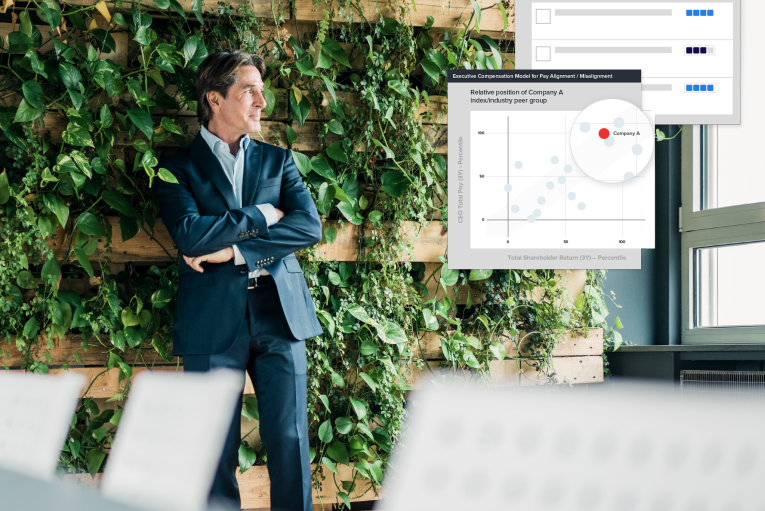The very advent of legal operations as a discipline is a visible demonstration of the burden of compliance and risk management on modern organizations. Such is the need for in-house legal resources that establishing a team or individual as a way to maximize the efficient delivery of legal services throughout the company becomes a way to scale the team and lessen the need for outside counsel support.
Today, though, the increasing movements toward a global approach to regulation, and the need for organizations to keep an ever-tighter eye on their own governance, compliance and risk processes, mean that legal operations teams are searching for better ways to track compliance and to assess risk. It's no good to just establish legal operations and assume that efficiency will be gained; instead, organizations must equip those teams with the tools to better assess risk and track compliance across the board.
These legal operations professionals can help with strategic planning, financial planning, staffing, research and analysis, project management, and running any technology that's been deployed to help compliance and governance across the organization. But while legal operations professionals can take on the tasks that do not require a law degree, thus freeing-up in-house lawyers to focus on the important legal work, they must still be empowered to handle administration and operations in an efficient and streamlined manner - otherwise, you're just adding an extra step into an already complex and burdensome system.
Resting on your laurels and assuming your current system ''will do'' can actually place your organization at greater risk. Today's risk issues change at the speed of business, and legal operations must be handled in a flexible way than can pivot quickly when needed.
How technology can help to track compliance and better assess risk
By deploying entity management software and other related technologies into a legal operations team, organizations can benefit from advanced administrative support as well as gain access to a new world of collaboration and insights.Track compliance with automation
Compliance risk can pose a threat to a group's financial, organizational and reputational standing - and in a world where regulation is only increasing, where there's an ever-increasing burden of reporting that must be taken care of, the ability to track compliance states is key to keeping an organization in good standing. It can be difficult to keep track of compliance, though, especially in larger groups with multiple entities operating across multiple jurisdictions. Global business and global regulation require incredibly efficient compliance processes, where legal operations teams are totally on the ball at all times. Human error is a major risk here, as it's easy to miss a deadline or to forget about that email from the auditor. The right combination of technology and best practices can make compliance processes more effective. Today's entity management platforms can automate basic compliance tasks, such as generating and filing reports, which takes some of the burden off the compliance managers. Legal technology can also introduce notifications and automatically push a workflow to the next stage, helping to keep compliance on track even if the compliance manager is on holiday.Better assess risk through enhanced real-time insights
That speed of globalization can and does also bring greater risk to operations, whether a company is a single entity or an international conglomerate built through merger and acquisition. Risk management is not just a smart business decision these days; it's seen as both a marker of ethical business and a necessity for remaining in good standing across all jurisdictions. By taking legal operations, compliance and governance to a cloud-based technology solution, risk managers can access real-time insights and much more robust entity data on which to build the company's risk profile. Monitoring is a big part of risk assessment, and the ability to access entity information at any time helps the risk manager to better monitor and better assess the risk to the organization. Legal operations teams and risk managers can not only use technology to gain real-time data, but can also build organizational charts to assess the ownership structure, spot potential gaps in compliance needs or issues with third-party relationships, or to begin a process of legal entity rationalization. They can also perform what's become known as ''integrated risk management,'' a holistic approach to legal operations that helps to improve decision-making and performance through an integrated view of how well an organization manages its own risks.Compliance and risk management with Diligent Entities
Of course, tracking compliance and managing risk needs robust, real-time entity data if it's to be worth its weight. That means the legal operations team and the wider in-house legal department should be advocating for the best in legal technology to be deployed internally, and for all related third parties and other stakeholders and partners, such as any registered agents, to have access to this legal technology. By collaborating in the cloud, legal operations teams can ensure all related entity data - from the status of reporting, to directors' personal details, to licenses and contracts - are accessible by those who need to see them, and those who need to contribute to them. This, in turn, helps to provide better quality entity data for insights, while the fuller picture provides better insights for risk assessment. Diligent Entities helps organizations to centralize, manage and effectively structure their corporate record to improve entity governance to better ensure compliance, mitigate risk and improve decision-making through an integrated governance solution. It creates a single source of truth for all entity information - itself a boon to risk assessment - while the integration of data from multiple business units like legal, tax, finance, treasury and compliance into a single system of record helps to ensure everyone is working from the same sheet. All entity information, documents and organizational charts are stored in a highly secure format, with the ongoing accuracy of the corporate record monitored using compliance calendars, reminders and workflows. Organizations can track compliance by reporting on governance and compliance requirements, and electronically file statutory forms into global regulatory bodies. Taking things to the next level, Diligent Entities also integrates seamlessly with Diligent Boards, a secure file-sharing platform, and more to create the Governance Cloud, an all-in-one ecosystem enabling modern governance practices across the organization. Get in touch and schedule a demo to see how Diligent's software can help you to better track compliance and assess risk across your legal entity structure.
Media Highlights
Environmental, social and governance (ESG) issues have become more complex and multifaceted than ever before. At the same time, ESG continues to ascend on board and leadership agendas.
In this buyer’s guide, we explore what a market-leading ESG solution should look like and highlight the key areas organisations should be prioritising as they embark on their search.




